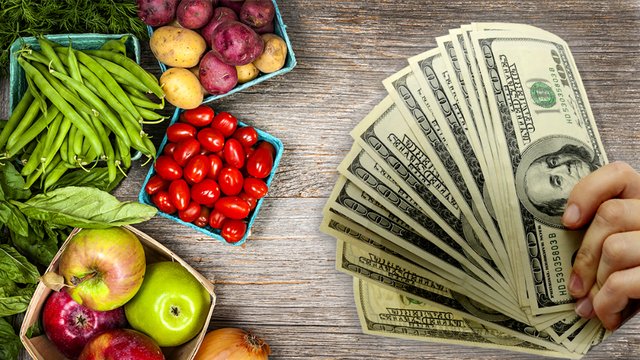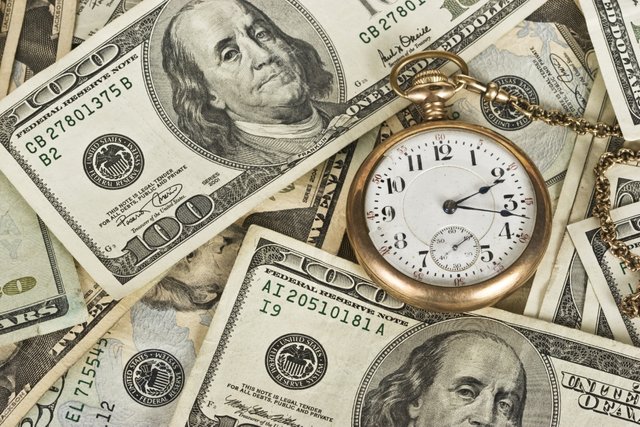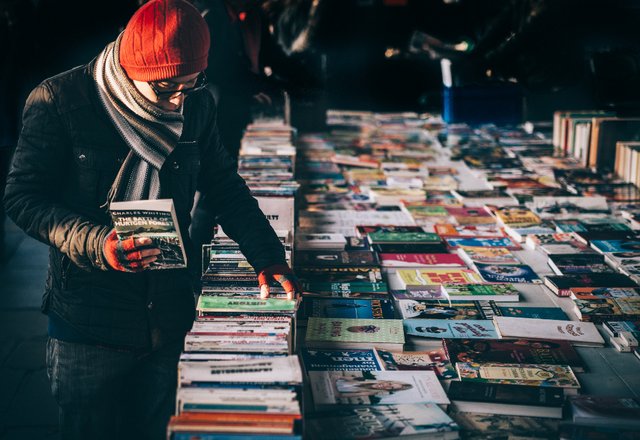5 Things Smart People Spend "Too Much" on (and You Should Too)
Cheaper is not always better.
There are certain times it's wise to spend more money and other times it's not, but it takes a certain type of person to realize this.
Not necessarily a financially-savvy person. More like a life-savvy person. A smart person.
Here are some examples of when you should gladly spend a little (or a lot) extra.
1. Health:
Anything that impacts your health is always worth spending top money on.

The best example I can think of is food.
Generally, higher quality food will be more expensive than lower quality food.
This is true in grocery stores as well as restaurants. 1 pound of grass-fed beef will cost you more than 1 pound of regular beef. A meal at Chipotle will cost you more than a meal at McDonald’s.
I go to a fast food salad place called Tossgreen and routinely spend more than $12 on a large steak and kale salad. Why would I do this when there are 10 other fast food options nearby which cost half as much?
The quality of food I eat directly impacts my energy, mood, and performance on a daily basis as well as my long-term health, so this is definitely something I’m willing to pay more for. You should too.
A bed is another example.
Like poor eating habits, poor sleeping habits compound over time and make a big difference in your overall health and quality of life. Not to mention you spend a third of your life sleeping, so it’s worth spending top money on a good bed.
Unlike food, you don’t buy a bed or mattress everyday. You’ll buy one and use it for several years or longer. That’s why it’s important to make sure you invest in a good one.
2. Frequently used items:
Certain items you use frequently are also worth spending more money on.
The more time you spend on something, the more utility value you get from buying higher quality.
I spend a few hours on my laptop everyday. I’ve had some good laptops and some crappy ones and the difference is night and day.
Now, I own a MacBook Air which is twice as expensive as other laptops I could have bought, but for me it’s a great investment because I spend so much time on it.
Note: it doesn’t have to be the most expensive version to be a worthwhile purchase.
If you drive a lot, it’s probably a good idea to have a good car. But that doesn’t mean a $100,000 car will be five times better for you than a $20,000 car. It just means you shouldn’t buy a sketchy junkyard car just to save a couple thousand bucks.
I could have bought a MacBook Pro, for example, and spent 50% more. But for how I use my laptop, the MacBook Air was a better option and still a very high quality product.
The key here is to use common sense, do your homework, and think about what makes the most sense for you to spend money on in your personal situation.
3. Time:
Would you rather spend time to save money or spend money to save time?

I’d much rather spend money to save time than vice versa.
If you can afford it, paying for your time is ALWAYS worth it.
I pay for a cleaning service to clean my house and virtual assistants to research things for me because I don’t enjoy doing these activities and I’d rather spend my time on other things like writing or hanging out with my family.
Some people might think spending money to save time is wasteful, but I’ll argue the opposite.
Consider the fact that you only have one life. How are you going to spend your precious time? Doing stuff you don’t like just because you can? To me, that’s wasteful.
I’d rather be doing something meaningful that brings me joy or satisfaction.
In many cases, it’s worth spending the extra money on labor that you don't enjoy because 1) you can spend the time it frees up on other things you enjoy more and 2) there are other people who may do a better job than you.
If you’re an analytical person, it might help to frame it this way:
Your time is worth a certain amount of money. You decide how much. Let’s say you value your time at $50 an hour.
If you can pay someone $25 an hour to do something you don’t want to do, then YOU WIN, especially if they can do a better job than you.
I wouldn’t limit this thinking to just services either.
Is the extra dollar you’d spend on diced veggies at the supermarket worth the 10 minutes it would take you to dice them yourself? If you love cooking, maybe not. But for me, the answer is always yes.
After all, you can always find ways to earn more money, but you can never get your time back.
4. Personal development:
I’m not talking about school or formal education. This may or may not be worth extra money depending on what field you want to pursue and what your career aspirations are.
I’m talking about investing in yourself and spending money on training that will improve your life in a specific way, such as building a new skill in order to start a side business.
If you want to become a photographer, it’s worth buying a course or program that will help you to develop that skill. Once you become good enough, you can start charging people and the program will pay for itself.

Image by Clem Onojeghuo.
Take books, for example. Is it a waste of money to buy books?
I like to defer to Ramit Sethi’s book-buying rule here:
If you’re “thinking about” buying a book, just buy it. Don’t waste 5 secs debating. Even 1 idea makes it worth it.In this article, Ramit explains that buying a $30 book could inspire you to do something that will make you $10,000.
Then again, it might not. It’s a risk, but one with very large upside and very little downside.
He’s obviously talking about nonfiction books here, but fiction books aren’t a waste of money either because you gain entertainment value from them.
Here’s how I see it:
- Best case: the book changes your life
- Worst case: the book sucks and you quit after a few pages or you forget about it and it collects dust (but this is your own fault)
- Most cases: you’ll learn a thing or two
These days, books aren’t that expensive.
The days of the $30 ebook are gone. Most paperbacks will cost you less than $15 and are available on Kindle for even less than that. Many shorter nonfiction Kindle books cost less than $5.
One of my favorite books of all time which totally changed the way I see the world is James Altucher ’s Choose Yourself. I’m pretty sure I bought this book for 99 cents.
The most influential personal finance book I’ve ever read, The Automatic Millionaire by David Bach, helped me accumulate nearly a quarter million dollars in retirement savings by age 33. I think I paid $7.99 for the paperback.
Books are some of the cheapest and best investments you can make in yourself.
There’s a little follow through required on your part to make the most of them, but that’s true with any form of education.
If you’re concerned with getting your money’s worth, here’s what I suggest doing after every book purchase:
Give yourself one week to finish the book and implement ONE thing you learned.
If you do this, it’ll be hard not to get any value from it.
5. Experiences:
This is one I didn't always agree with, but I do now.
What does it mean to "spend money on experiences, not things?"
This TED talk by Joseph Pine talks about how companies like Starbucks try to provide experiences:
Here's the main difference to me:
Things are tangible. They are items you can hold in your hand.
Examples of things are clothes, electronics, and golf clubs.
Experiences are not tangible. You EXPERIENCE them. Then, they are gone and only exist in your memory.
Examples of experiences are vacations, concerts, and dates.
Here’s where the gray area comes in:
Often, things and experiences go hand-in-hand, so it’s difficult to think about them separately.
Starbucks is a perfect example.
Coffee, itself, is a thing. You can get coffee at a million places such as Starbucks, Dunkin’ Donuts, McDonald’s, the grocery store, etc.
At Starbucks, attached to that thing is a certain feeling you get from being a customer of Starbucks and Starbucks only. These are elements like presentation, service, and atmosphere that aren’t tangible, but contribute to the overall experience of Starbucks.
If you go buy coffee at a gas station, you’d get a similar thing, but a totally different experience than at Starbucks.
When we spend money on the combination of things and experiences, how much we spend often depends more on the quality of the experience than the quality of the thing.
My favorite restaurant in my hometown is a French restaurant called Orsay, where my wife and I go a few times a year, usually for a special occasion or celebration.
I always look forward to it not just because the food is great, but also because the service and atmosphere are also incredible. Orsay isn’t cheap, but I’m happy to spend money there because I get a lot of value from the experience.
When people say “spend money on experiences, not things,” they are encouraging you to make lasting memories instead of accumulating stuff.
This doesn’t necessarily mean go to the nicest coffee shops and stay at the nicest hotels and eat at the nicest restaurants, although it can if you value these experiences.
It’s really more about spending your money on the non-tangible things that are important to you. The things that will create lasting memories for you personally.
It could mean donating to a charity to build schools in developing countries or backpacking around Europe or paying a surprise visit to your parents.
Why spend on experiences instead of things?
This article in Forbes states there is research that suggests people who spent money on experiences instead of things are happier for the following reason:
The thrill of purchasing things fades quickly but the joy and memories of experiences, from epic adventures to minute encounters, can last a lifetime.It makes sense and I’ve found this to be true in my own experiences, particularly since I met my wife.
These days, I prefer to spend more money on memorable experiences than material goods. It goes well with the whole theme of minimalism, which I’m really into.
No matter how much money you have, if you spend it on these things, your life will undoubtedly improve.
What are some other things you feel are worth spending more on?
First published on Quora (1, 2, 3, 4, 5).
Hi. I am a volunteer bot for @resteembot that upvoted you.
Your post was chosen at random, as part of the advertisment campaign for @resteembot.
@resteembot is meant to help minnows get noticed by re-steeming their posts
To use the bot, one must follow it for at least 3 hours, and then make a transaction where the memo is the url of the post.
If you want to learn more - read the introduction post of @resteembot.
If you want help spread the word - read the advertisment program post.
Steem ON!